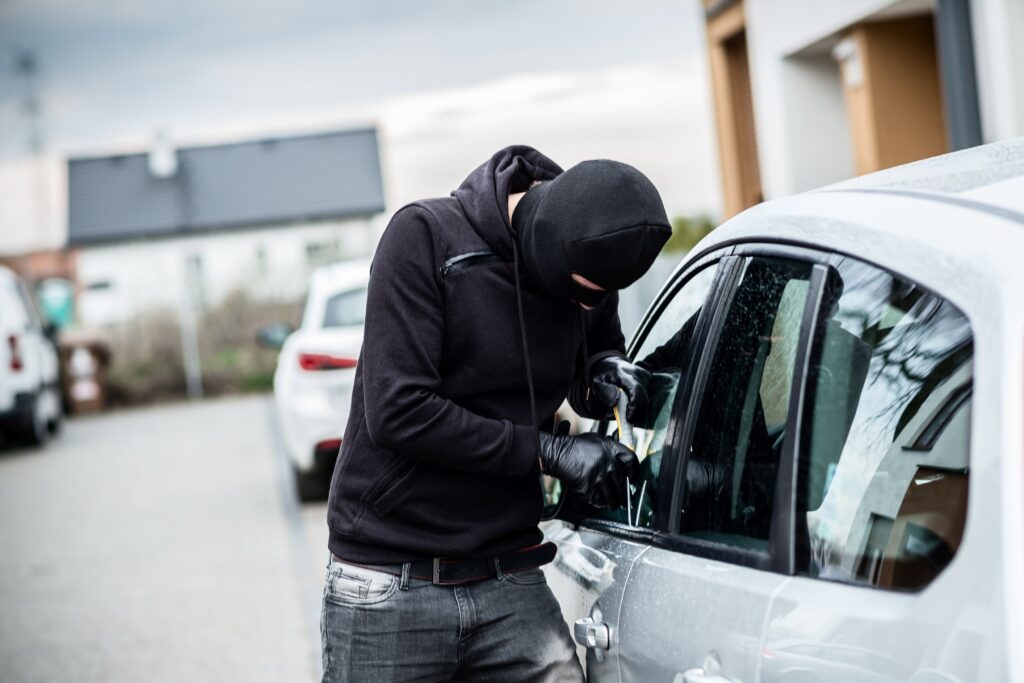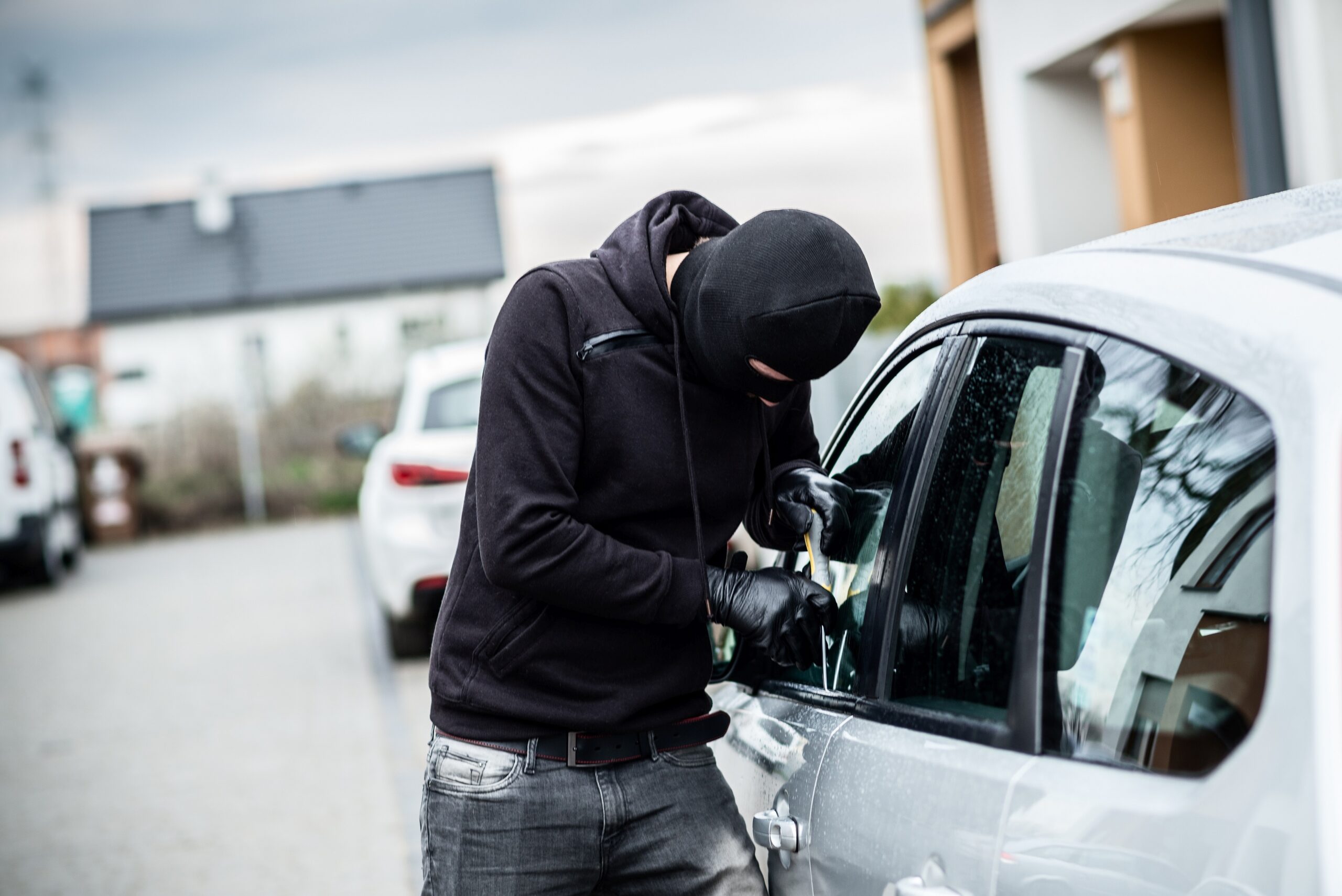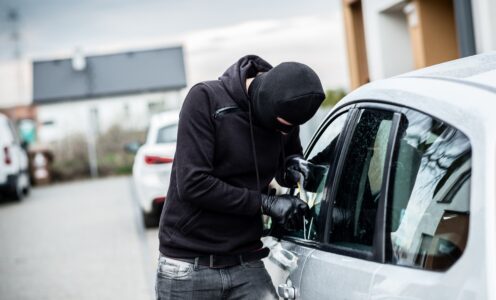
Picture this… you get home after a long journey, and your wheelie bin is at the end of your drive. Your natural reaction might be to get out of your car to move the bin out of the way, so you can pull into your driveway.
Believe it or not, thieves are using this as a tactic to steal cars. When drivers jump out of their car to move the bin, leaving the engine running, criminals are then driving off with the vehicle. As the keys have been left in the car, many insurance policies may not cover motorists for this type of theft. If your wheelie bin seems strangely out of place, think about parking around the corner, ensuring you lock your car. If you notice anyone suspicious, stay safe – get back in your vehicle and call the police.
Almost 75k cars were stolen last year – a 33% increase from 2019, according to the DVLA.
Whether you have a personal vehicle or a motor fleet, we’ve put together our top tips, so you don’t become a victim of vehicle theft.
Keyless Car Theft
Provisional figures from the National Police Chiefs’ Council show a 3.1% increase between May and June 2021 in vehicle crime. The bulk of this increase is from keyless theft.
Most modern vehicles now open with keyless technology, and thieves have found a way to exploit this. Police intelligence shows organised crime gangs are using technology to get signals from keyfobs inside residential and commercial properties. They then transfer this to a portable, relay device which allows them to unlock the vehicle(s) and drive away. This is known as keyless or relay theft, and criminals can get the signal and steal a car or van in less than two minutes.
On average keyfobs have an unlocking range of five to 20 metres, so make sure they’re kept as far away as possible from any entry points in your home or business. Some keyfobs have the option to turn off the keyless entry feature – it’s always worth checking with your vehicle manufacturer if it can be disabled. Another way to prevent access to your keyfob is by keeping it in a blocking pouch, which does what it says on the tin and prevents the signal from being used on a relay device.
Out of Sight, Out of Mind
It can be easy to leave items in our cars or work vans that we know we’re going to need on our next journey. However, an opportune thief may notice something on the back seat and break in and steal it. Not only could they take the contents, but they may also hot wire the vehicle once they’ve broken in.
If you need to leave anything in a vehicle, always make sure it is hidden away safely in the boot. However, it is best advised to empty any car, van or lorry at the end of the day. That way, it isn’t a temptation for opportunists.
Choose Your Route Carefully
Think about the area you’re driving through or to – is it safe? Have you been there before? Try to stick to main routes where possible, especially if you’re in an unknown area. Car thieves may stake out lesser-known areas, hoping for someone who is lost. They may pretend to be broken down, so you stop to help them. Similar to the wheelie bin trick, they’re hoping drivers will leave the ignition running, so they can make a quick getaway.
If you’re parking, always choose a well-lit car park that has CCTV – as this could put criminals off from targeting your vehicle.
Be Prepared
There are devices out there that can deter criminals or stop them in their tracks, including:
Steering wheel locks
While they’re not 100% indestructible, they can put thieves off
Kill switches
Hidden way, they either intercept the flow of electricity to the battery or ignition or disarm the fuel pump
Immobilisers
If someone tries to hot wire your vehicle(s), an immobiliser will prevent the car from starting by stopping the ignition, fuel and starter motor from working in unison
Trackers
If your car or fleet is stolen, a covert tracking device can help you to recover your vehicle(s) from thieves, without the criminals ever knowing you’re tracking them.
Get in touch
If you have any questions please don’t hesitate to get in touch with us.


